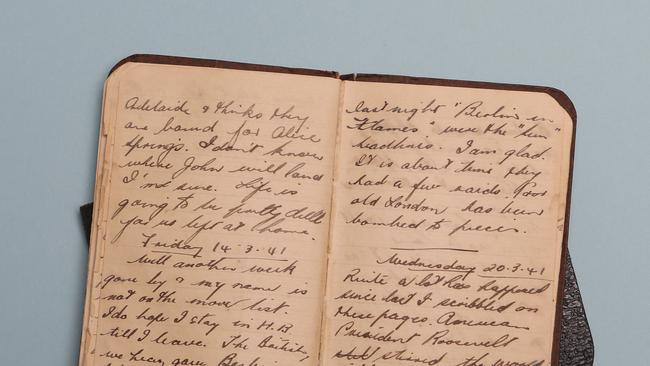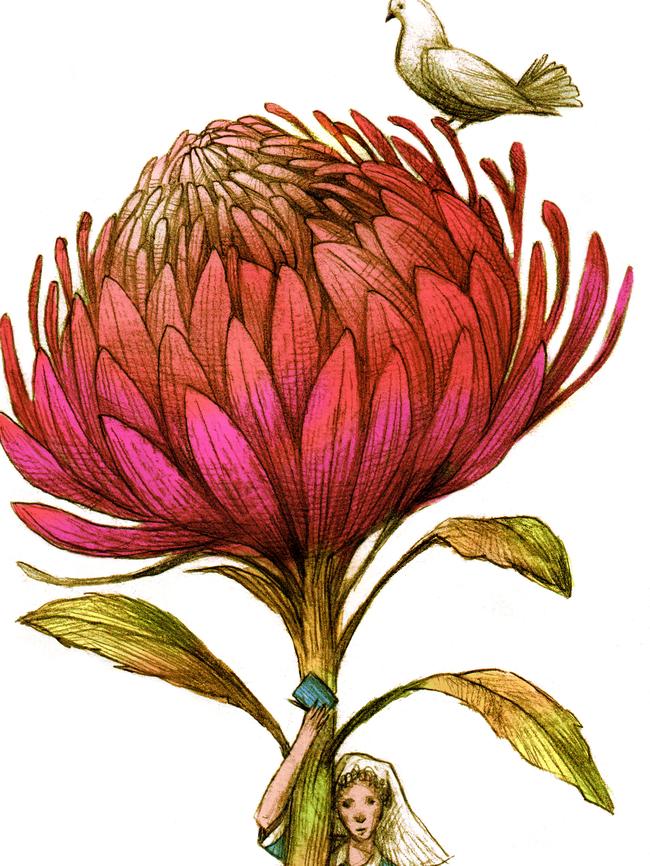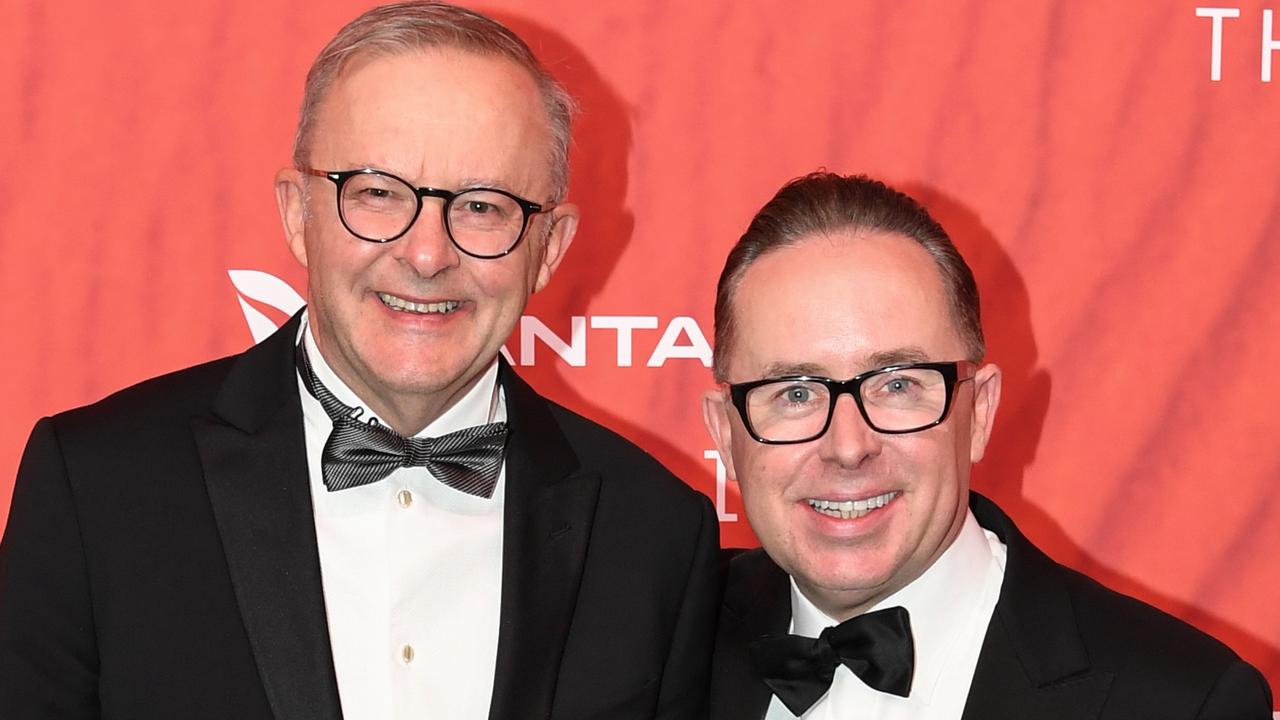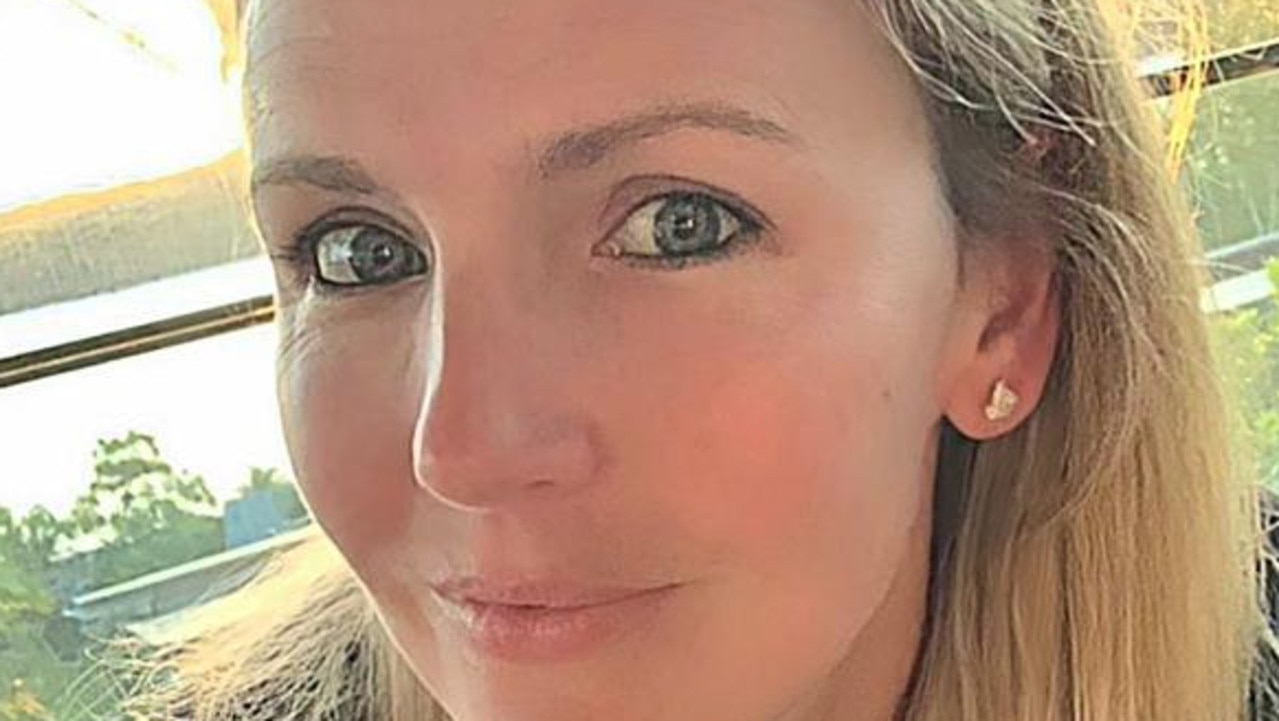World is still fighting with itself but hope lives on
Over eighty years ago, as the world around her unravelled, my grandmother picked up a pen and recorded her days on the pages of two tiny notebooks, writes Jane Armitstead.

Opinion
Don't miss out on the headlines from Opinion. Followed categories will be added to My News.
Over eighty years ago, as the world around her unravelled, my grandmother picked up a pen and recorded her days on the pages of two tiny notebooks.
When my family uncovered these diaries after she passed away peacefully at home at the age of 96 in 2015, it was an incredible discovery.
The age-stained books, written in 1941 and 1945, were tucked away in drawers beside her bed and stayed close to her until the very end. Only one was known while she was alive.
World War II was raging, her beloved partner and brother were on the frontline, the unknown was terrifying and life was full of chaos and confusion.
As I read grandma’s words today, it’s extraordinary how her powerful and vivid prose still carries an unbelievable relevance.

We’re days away from the US election to decide who leads the free world and, in the wrong hands, that power could become dangerously unpredictable.
The world is still ravaged by violent and brutal wars causing unfathomable human suffering, destruction, devastation and mass killings.
It is extraordinary how closely it mirrors what grandma described on the pages of her wartime diaries 83 years ago. She was just a young woman in her 20s trying to make sense of it all through words and had no idea those words would endure the decades.
On March 20, 1941, she wrote, “It seems so dreadful all these young boys marching gaily off to war. A war caused by a fanatical ambitious madman. It is all so unnecessary and uncivilised. Sometimes it seems unbelievable to me that men and women, creators of wonderful discoveries, painters of beautiful pictures, writers of glorious books, singers of lovely songs of love and beauty should have turned all their wonderful gifts into the work of killing fellow human beings, destroying the work of people’s whole lives, and the magnificent buildings and treasures, centuries old.”
A month before, on April 12, 1941: “So many will be killed and for what? War will never end a quarrel. War may cease but the bitterness remains.”
She continued on January 11, 1945, “Oh if only it could all end. The stupidity and senselessness of it all is all that I can bear at times.”
Between waiting for news of her beloved partner Jon (grandpa) while back at her home in Sydney, she was a grief-stricken nurse working in a hospital to save the lives of children.
She filled the pages with loss and heartache for the babies who died of then incurable diseases whooping cough, diphtheria and polio.
“Baby Kevin is the most beautiful thing,” she wrote on January 19, 1941, “he is only seven weeks old too, I do hope he gets better, so few of them do.”
Sadly, weeks later he died, and on January 31, 1941, she wrote:
“My little Kevin died today. Somehow I can never get used to the little babies gasping for breath, that expression of anxiety of their faces which one learns to dread.”
The tragic entries continued as she wrote of all the children she lost yet, honouring their memories in the hopes they would never be forgotten.
“Little Ian died last night … when I walked onto the ward, there was a place where his head always was. I miss him dreadfully now.”
Time has brought much change, including a vaccine for these killer diseases, but one of her final entries, penned on May 1, 1945, was a simple wish that is as true today as it ever was: “Oh how I wish there would be peace for all the world.”
She had an incredible resilience and quiet courage but above all, she was always hopeful. It’s a timeless lesson that will stay with me forever, that no matter what, sometimes all we need is a little bit of hope.
Jane loves
The Imperfects podcast. Comforting, enlightening, vulnerable, interesting and insightful conversations with celebrities and experts, hosted by Hugh van Cuylenburg, Ryan Shelton and Josh van Cuylenburg.
Originally published as World is still fighting with itself but hope lives on



